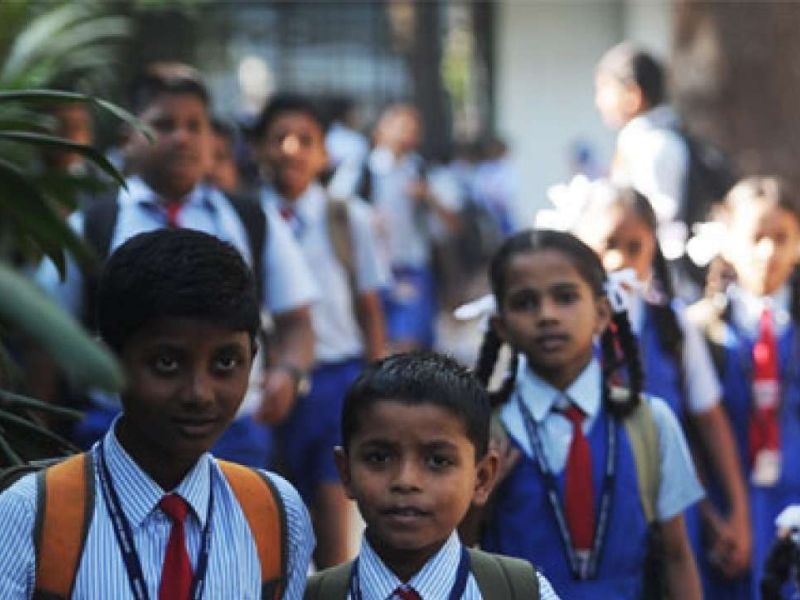The Annual Status of Education Report (ASER) 2019 released nationally on January 15 says 64.1 percent of Maharashtra’s six year olds are age appropriately enrolled in grade one (standard I) as compared to the national average of just 46.4 percent six year olds studying in standard I. The ‘Early Years’ survey conducted by the Mumbai-based not-for-profit Pratham Education Foundation’s (estb.1994) for pre-schoolers and early learners marks important developmental indicators such as cognitive skills, early numeracy, early language, social and emotional learning in children between ages 4-8. The survey reached 36,930 children covering one district across 24 states (except for Madhya Pradesh and Uttar Pradesh wherein two districts were included in the survey).
According to the survey, while more than 90 percent of 4-8 years olds across the country are enrolled in some type of educational institution, four out of five children in standard I are either younger than five years or older than six years in states other than Maharashtra. While many states allow children as young as age five to enter standard I, the Right to free and compulsory Education for Children Act, 2009 (RTE) mandates children should enter grade I at age six. Educationists consider grade I as a critical year for children since they transition from a playschool setting to formal schooling and are expected to fulfill the associated curriculum prospects for their formal subject-specific learning.
Age appropriate schooling has also been an important theme of the draft of the National Education Policy 2019 (NEP) which specifically acknowledges, “A major part of the (learning) crisis appears to be occurring well before children even enter grade I. Far too many children are enrolling in grade I before the age of 6, due to lack of any suitable preprimary options (and limited early childhood care and education (ECCE)); these are often the children that remain the most behind in primary school and beyond.” ASER’s own findings of the past 14 years measuring foundational reading and arithmetic skills in children in the 5-16 age group showing primary grade children lacking reading and numeracy skills aren’t able to keep up with the expectations of their grade level textbooks at higher grades.
Maharashtra’s robust anganwadi (pre-primary playschools) system-1,08,005 anganwadis under the government’s Integrated Child Development Services programme (ICDS) is why the state sees the highest percentage of six year olds enrolling in grade I. The ‘Early Years’ report suggests there is a need for anganwadis to focus on improving cognitive skills amongst children since “there is a strong relationship between children’s cognitive skills and their performance on early language and early numeracy tasks”. Maharashtra’s two lakh anganwadi workers conduct play-based activities that help build memory, reasoning and problem-solving abilities in children well before they enter pre-primary or any formal schooling.
The survey was conducted across 60 villages in Nagpur district and reached out to 1474 children who registered a performance better than the national average across several of the tested metrics. While the national average of class I students who can recognise two digit numbers stands at 41.1 percent, the state’s outcome stands at 46.5 percent. With regards to children’s reading abilities, while the national average of class II children who can read a class I book stands at 34.8 percent, in Maharashtra it stands higher at 44.1 percent. While standard I students from the state displayed poor reading abilities with 21.3 percent not being able to read a single letter of their mother tongue, they still fared better than the national average of 39 percent being unable to read a letter. Maharashtra’s learning outcomes, though a tad higher than other states is far from satisfactory for a state that spends over Rs 21,000 per child and has an education budget of Rs 71,307 core (2019-20).
Also read: Annual education survey reveals poor cognitive skills among 4-8 year olds
Posted in News, States



























